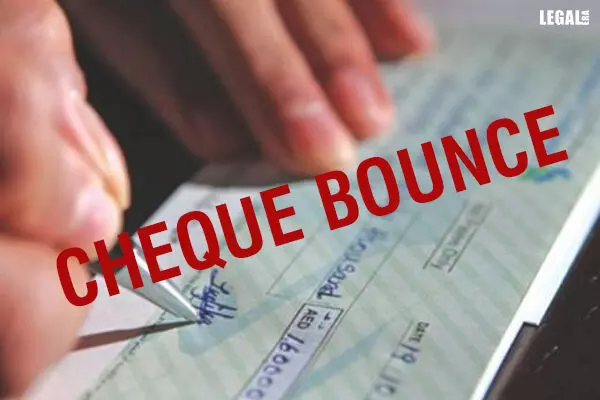- Home
- News
- Articles+
- Aerospace
- Artificial Intelligence
- Agriculture
- Alternate Dispute Resolution
- Arbitration & Mediation
- Banking and Finance
- Bankruptcy
- Book Review
- Bribery & Corruption
- Commercial Litigation
- Competition Law
- Conference Reports
- Consumer Products
- Contract
- Corporate Governance
- Corporate Law
- Covid-19
- Cryptocurrency
- Cybersecurity
- Data Protection
- Defence
- Digital Economy
- E-commerce
- Employment Law
- Energy and Natural Resources
- Entertainment and Sports Law
- Environmental Law
- Environmental, Social, and Governance
- Foreign Direct Investment
- Food and Beverage
- Gaming
- Health Care
- IBC Diaries
- In Focus
- Inclusion & Diversity
- Insurance Law
- Intellectual Property
- International Law
- IP & Tech Era
- Know the Law
- Labour Laws
- Law & Policy and Regulation
- Litigation
- Litigation Funding
- Manufacturing
- Mergers & Acquisitions
- NFTs
- Privacy
- Private Equity
- Project Finance
- Real Estate
- Risk and Compliance
- Student Corner
- Take On Board
- Tax
- Technology Media and Telecom
- Tributes
- Viewpoint
- Zoom In
- Law Firms
- In-House
- Rankings
- E-Magazine
- Legal Era TV
- Events
- Middle East
- Africa
- News
- Articles
- Aerospace
- Artificial Intelligence
- Agriculture
- Alternate Dispute Resolution
- Arbitration & Mediation
- Banking and Finance
- Bankruptcy
- Book Review
- Bribery & Corruption
- Commercial Litigation
- Competition Law
- Conference Reports
- Consumer Products
- Contract
- Corporate Governance
- Corporate Law
- Covid-19
- Cryptocurrency
- Cybersecurity
- Data Protection
- Defence
- Digital Economy
- E-commerce
- Employment Law
- Energy and Natural Resources
- Entertainment and Sports Law
- Environmental Law
- Environmental, Social, and Governance
- Foreign Direct Investment
- Food and Beverage
- Gaming
- Health Care
- IBC Diaries
- In Focus
- Inclusion & Diversity
- Insurance Law
- Intellectual Property
- International Law
- IP & Tech Era
- Know the Law
- Labour Laws
- Law & Policy and Regulation
- Litigation
- Litigation Funding
- Manufacturing
- Mergers & Acquisitions
- NFTs
- Privacy
- Private Equity
- Project Finance
- Real Estate
- Risk and Compliance
- Student Corner
- Take On Board
- Tax
- Technology Media and Telecom
- Tributes
- Viewpoint
- Zoom In
- Law Firms
- In-House
- Rankings
- E-Magazine
- Legal Era TV
- Events
- Middle East
- Africa
Supreme Court Urges Courts To Encourage Compounding In Cheque Bounce Cases

Supreme Court Urges Courts To Encourage Compounding In Cheque Bounce Cases
The Supreme Court has recently reaffirmed that the primary objective of criminalizing cheque bounce under the Negotiable Instruments Act, 1881 (NI Act) is to ensure the reliability of cheques. The Court emphasized that the compensatory aspect of the remedy should take precedence over the punitive aspect in such cases. The ruling encourages courts to facilitate settlements in cases of cheque dishonor.
A bench comprising Justices Sudhanshu Dhulia and Ahsanuddin Amanullah noted that dishonor of cheques, while a regulatory offense, was intended to protect the public interest by maintaining the trustworthiness of cheques. The Court expressed concern over the backlog of cheque bounce cases and underscored that the compensatory element of the remedy should be prioritized over punitive measures. The judges highlighted the need for courts to promote settlement or compounding of such offenses when both parties agree.
The Supreme Court revisited the conviction of M/s New Win Export and its Partner, P. Kumarasamy, who were involved in a cheque bounce case. The dispute began in 2006 when Kumarasamy borrowed ₹5,25,000 from A. Subramaniam, the respondent, and issued a cheque from M/s New Win Export. The cheque was dishonored due to insufficient funds, leading Subramaniam to file a complaint under Section 138 of the NI Act.
Initially, the Trial Court convicted the appellants on October 16, 2012, sentencing them to one year of simple imprisonment. The Appellate Court later acquitted them, but this decision was overturned by the High Court on April 1, 2019, which reinstated the Trial Court's conviction.
Before the Supreme Court, the parties reached a settlement on January 27, 2024. Under this agreement, the appellants paid ₹5,25,000 to the complainant, who confirmed the settlement and had no objection to setting aside the conviction.
The Supreme Court observed that Section 147 of the NI Act permits the compounding of offenses, and Section 320(5) of the Criminal Procedure Code (CrPC) allows for compounding after conviction with the court's permission. The Court highlighted the importance of validating settlement documents at the appellate stage.
Given the complainant's affidavit confirming the settlement and lack of objection to overturning the conviction, the Supreme Court found no purpose in upholding the conviction. The Court ruled that the settlement constituted a valid compounding of the offense.
The Supreme Court allowed the appeal, overturning the High Court's order from April 1, 2019, and the Trial Court's order from October 16, 2012. As a result, the appellants were acquitted, and Kumarasamy, who had previously been exempted from surrendering, was not required to do so.



